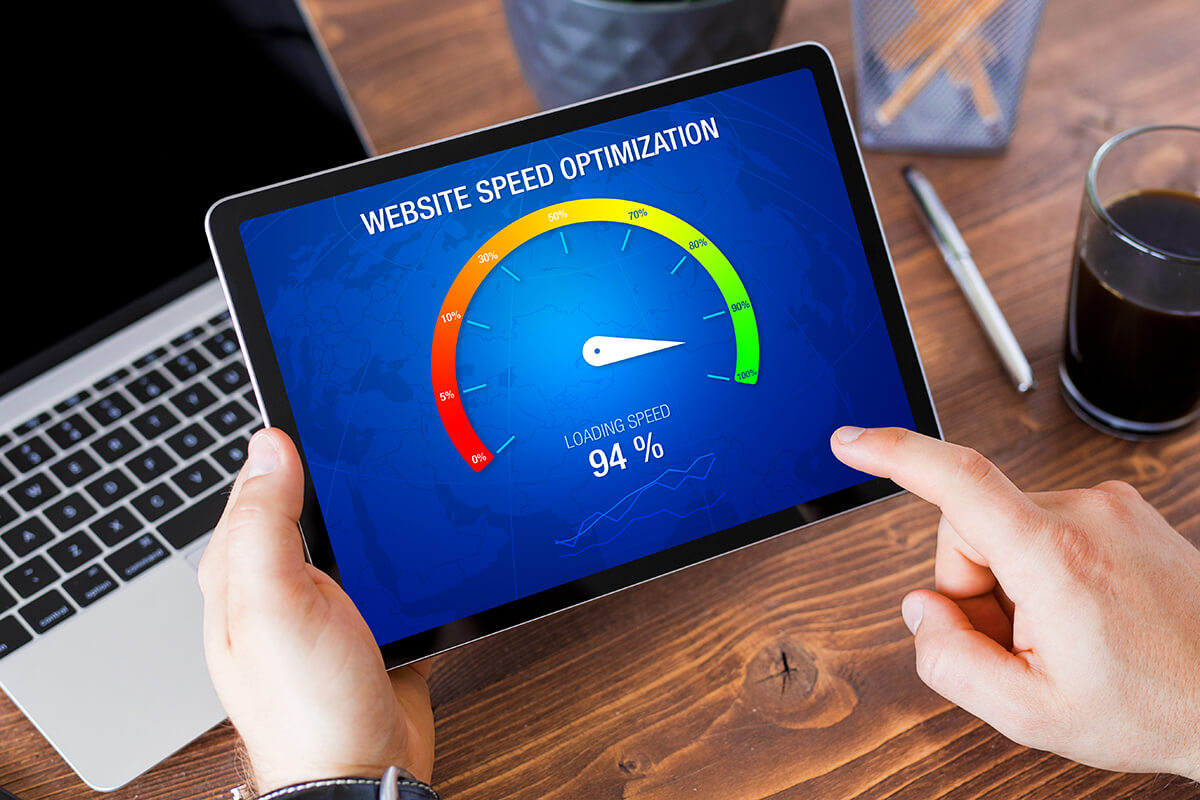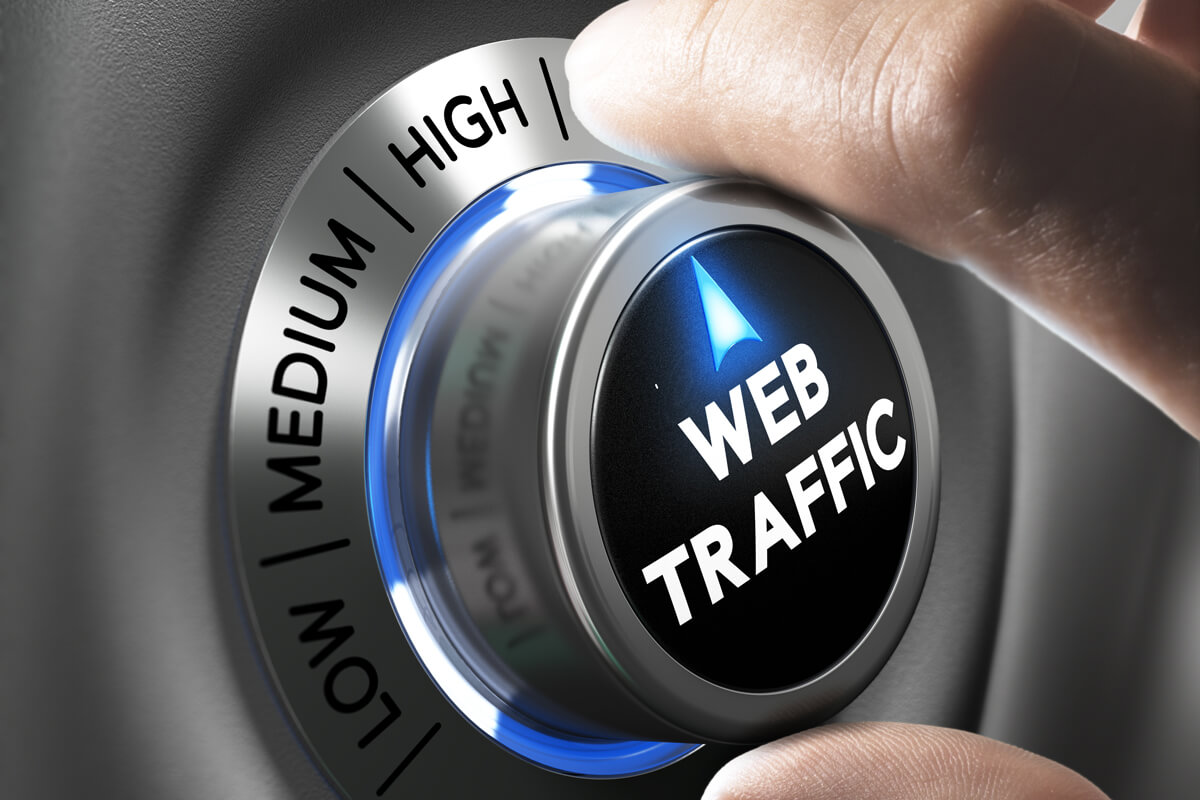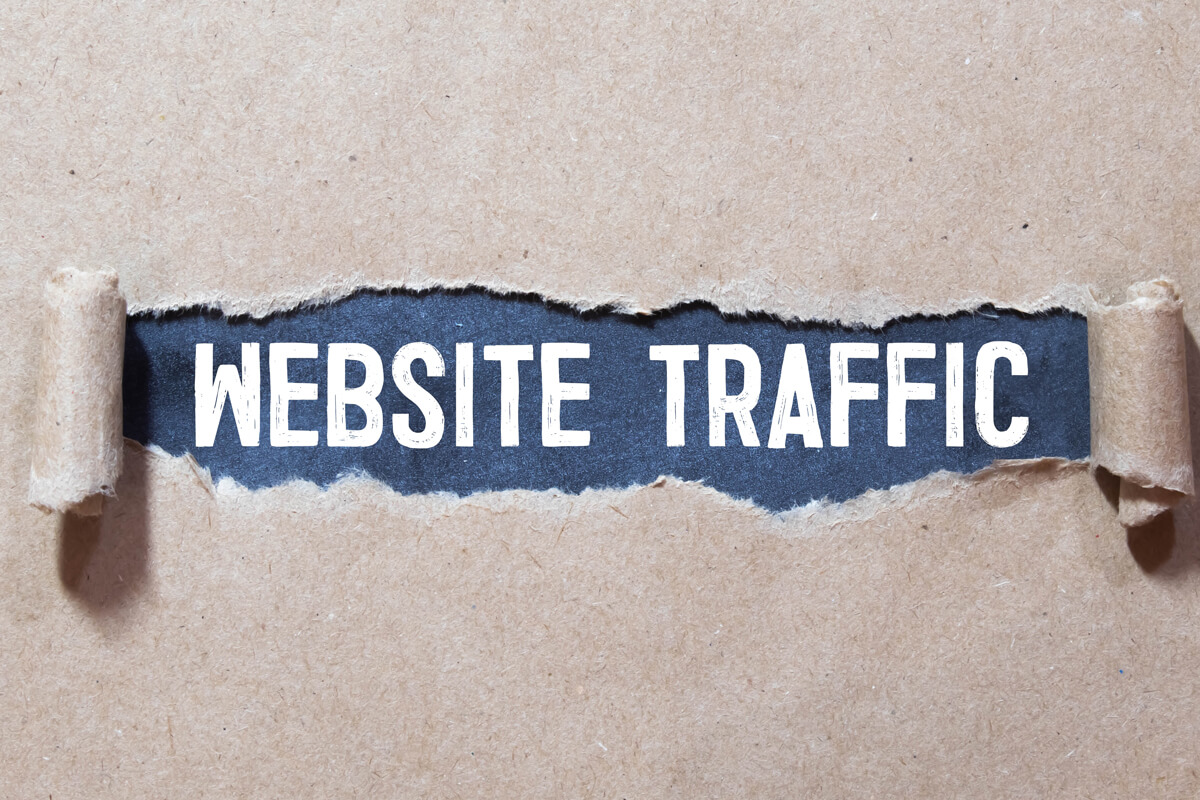Website speed optimization is one of the most important elements of website design and development. It is not only important for SEO purposes, but it also affects the overall user experience. Below are the topics we will discuss, website speed optimization, how it affects SEO and user experience, and how to optimize website speed for maximum efficiency and performance.
What is Website Speed Optimization?
Website speed optimization is the process of optimizing a website for faster loading times and better performance. This is done by reducing the size of images and files, minifying code, and using caching techniques. It is a crucial part of SEO and should not be overlooked.
When it comes to SEO, website speed plays a huge role. Search engine algorithms take website speed into account when determining rankings, so the faster your website loads, the higher your rankings will be. Additionally, website speed affects the overall user experience, as visitors will be more likely to stay on your website if it loads quickly.
Understanding Website Speed and SEO
When it comes to SEO, website speed is an important factor. Search engine algorithms take website speed into account when determining rankings, so the faster your website loads, the higher your rankings will be. This means that if your website is slow, it will be more difficult to rank well in search engine results.
Additionally, website speed affects the overall user experience, as visitors will be more likely to stay on your website if it loads quickly. The longer the website takes time to load, the more the frustrated visitors are and they end up leaving the website without reading any content.
How Website Speed Affects User Experience
Website speed plays a huge role in user experience. If your website loads quickly, visitors will be me likely to stay on your website and explore your content. However, slow website to drive the potenital customers away.
Additionally, website speed can affect how visitors perceive your website. Visitors may think that the slow website is not trustworthy or reliable, leading to a decrease in conversions and sales.
How to Measure Website Speed
It is important to measure website speed in order to understand how it is affecting your SEO and user experience. Here are some tools that can help you measure website speed, such as Google PageSpeed Insights, GTmetrix, and Pingdom.
These tools will provide detailed reports on the speed of your website, including load times, server response times, and more. These tools can identify areas of improvement and suggest useful changes to optimize your website for faster loading times.

Best Practices for Website Speed Optimization
There are several best practices for website speed optimization that you should follow. These include optimizing images, minifying code, using caching techniques, and reducing redirects. Additionally, you should use a content delivery network (CDN) to ensure that your website is loading quickly from all locations.
It is also important to keep up with website updates and ensure that all plugins, themes, and scripts are up to date. This will help to ensure that your website is running efficiently and will help to reduce loading times.
Common Causes of Poor Website Speed
There are several common causes of poor website speed, such as large images, bloated code, and slow hosting. Additionally, outdated plugins, themes, and scripts can lead to slow loading times. It is beneficial to identify the root cause of your website’s slow loading times in order to make the necessary changes to optimize your website.
Tools for Optimizing Website Speed
There are several tools available that can help you optimize your website for faster loading times. These tools include Google PageSpeed Insights, GTmetrix, and Pingdom. These tools will provide detailed reports on the speed of your website, including load times, server response times, and more.
Additionally, there are several WordPress plugins that can help you optimize your website for faster loading times, such as WP Rocket and W3 Total Cache. These plugins can help to reduce the size of images, minify code, and more.
Using WordPress to Optimize Website Speed
WordPress is a great platform for optimizing website speed. WP Rocket and W3 Total Cache are two of the many WordPress plugins that can help you optimize your website for faster loading times . Additionally, there are several best practices for website speed optimization that you should follow, such as optimizing images, minifying code, and using caching techniques.
Tips for Optimizing Website Speed
Here are some tips for optimizing website speed:
- Optimize images: Make sure to compress and resize your images to reduce their file size. Additionally, use a content delivery network (CDN) to ensure that your images are loading quickly from all locations.
- Use caching techniques: Caching techniques can help reduce loading times by storing frequently used files in the browser. This can help to reduce the amount of data that needs to be downloaded each time a page is loaded.
- Minify code: Minifying code can help to reduce the size of files and improve loading times.
- Reduce redirects: Redirects can add extra time to loading times, so it is important to reduce the number of redirects on your website.
- Use a content delivery network (CDN): A CDN can help to ensure that your website is loading quickly from all locations.
Website Speed Optimization Services
If you are looking for website speed optimization services, there are several companies that specialize in this service. These companies can help to optimize your website for faster loading times and better performance.
Additionally, there are several WordPress plugins that can help you optimize your website for faster loading times, such as WP Rocket and W3 Total Cache. These plugins can help to reduce the size of images, minify code, and more.
Conclusion
Website speed optimization is an important element of website design and development. It is not only important for SEO purposes, but it also affects the overall user experience. In this blog post, we discussed what website speed optimization is, how it affects SEO and user experience, and how to optimize website speed for maximum efficiency and performance. We also discussed the best practices for website speed optimization, common causes of poor website speed, and the tools and services available for optimizing website speed. Optimizing your website for faster loading times and better performance can be achieved by adhering to website speed optimization best practices and utilizing available tools and services.
Table of Contents
Share on
Website speed optimization is one of the most important elements of website design and development. It is not only important for SEO purposes, but it also affects the overall user experience. Below are the topics we will discuss, website speed optimization, how it affects SEO and user experience, and how to optimize website speed for maximum efficiency and performance.
What is Website Speed Optimization?
Website speed optimization is the process of optimizing a website for faster loading times and better performance. This is done by reducing the size of images and files, minifying code, and using caching techniques. It is a crucial part of SEO and should not be overlooked.
When it comes to SEO, website speed plays a huge role. Search engine algorithms take website speed into account when determining rankings, so the faster your website loads, the higher your rankings will be. Additionally, website speed affects the overall user experience, as visitors will be more likely to stay on your website if it loads quickly.
Understanding Website Speed and SEO
When it comes to SEO, website speed is an important factor. Search engine algorithms take website speed into account when determining rankings, so the faster your website loads, the higher your rankings will be. This means that if your website is slow, it will be more difficult to rank well in search engine results.
Additionally, website speed affects the overall user experience, as visitors will be more likely to stay on your website if it loads quickly. The longer the website takes time to load, the more the frustrated visitors are and they end up leaving the website without reading any content.
How Website Speed Affects User Experience
Website speed plays a huge role in user experience. If your website loads quickly, visitors will be me likely to stay on your website and explore your content. However, slow website to drive the potenital customers away.
Additionally, website speed can affect how visitors perceive your website. Visitors may think that the slow website is not trustworthy or reliable, leading to a decrease in conversions and sales.
How to Measure Website Speed
It is important to measure website speed in order to understand how it is affecting your SEO and user experience. Here are some tools that can help you measure website speed, such as Google PageSpeed Insights, GTmetrix, and Pingdom.
These tools will provide detailed reports on the speed of your website, including load times, server response times, and more. These tools can identify areas of improvement and suggest useful changes to optimize your website for faster loading times.

Best Practices for Website Speed Optimization
There are several best practices for website speed optimization that you should follow. These include optimizing images, minifying code, using caching techniques, and reducing redirects. Additionally, you should use a content delivery network (CDN) to ensure that your website is loading quickly from all locations.
It is also important to keep up with website updates and ensure that all plugins, themes, and scripts are up to date. This will help to ensure that your website is running efficiently and will help to reduce loading times.
Common Causes of Poor Website Speed
There are several common causes of poor website speed, such as large images, bloated code, and slow hosting. Additionally, outdated plugins, themes, and scripts can lead to slow loading times. It is beneficial to identify the root cause of your website’s slow loading times in order to make the necessary changes to optimize your website.
Tools for Optimizing Website Speed
There are several tools available that can help you optimize your website for faster loading times. These tools include Google PageSpeed Insights, GTmetrix, and Pingdom. These tools will provide detailed reports on the speed of your website, including load times, server response times, and more.
Additionally, there are several WordPress plugins that can help you optimize your website for faster loading times, such as WP Rocket and W3 Total Cache. These plugins can help to reduce the size of images, minify code, and more.
Using WordPress to Optimize Website Speed
WordPress is a great platform for optimizing website speed. WP Rocket and W3 Total Cache are two of the many WordPress plugins that can help you optimize your website for faster loading times . Additionally, there are several best practices for website speed optimization that you should follow, such as optimizing images, minifying code, and using caching techniques.
Tips for Optimizing Website Speed
Here are some tips for optimizing website speed:
- Optimize images: Make sure to compress and resize your images to reduce their file size. Additionally, use a content delivery network (CDN) to ensure that your images are loading quickly from all locations.
- Use caching techniques: Caching techniques can help reduce loading times by storing frequently used files in the browser. This can help to reduce the amount of data that needs to be downloaded each time a page is loaded.
- Minify code: Minifying code can help to reduce the size of files and improve loading times.
- Reduce redirects: Redirects can add extra time to loading times, so it is important to reduce the number of redirects on your website.
- Use a content delivery network (CDN): A CDN can help to ensure that your website is loading quickly from all locations.
Website Speed Optimization Services
If you are looking for website speed optimization services, there are several companies that specialize in this service. These companies can help to optimize your website for faster loading times and better performance.
Additionally, there are several WordPress plugins that can help you optimize your website for faster loading times, such as WP Rocket and W3 Total Cache. These plugins can help to reduce the size of images, minify code, and more.
Conclusion
Website speed optimization is an important element of website design and development. It is not only important for SEO purposes, but it also affects the overall user experience. In this blog post, we discussed what website speed optimization is, how it affects SEO and user experience, and how to optimize website speed for maximum efficiency and performance. We also discussed the best practices for website speed optimization, common causes of poor website speed, and the tools and services available for optimizing website speed. Optimizing your website for faster loading times and better performance can be achieved by adhering to website speed optimization best practices and utilizing available tools and services.





